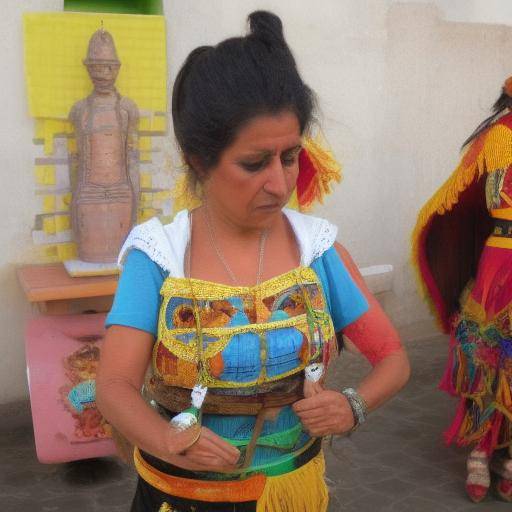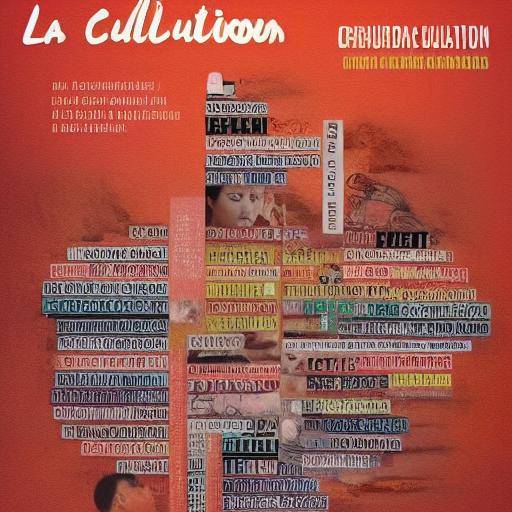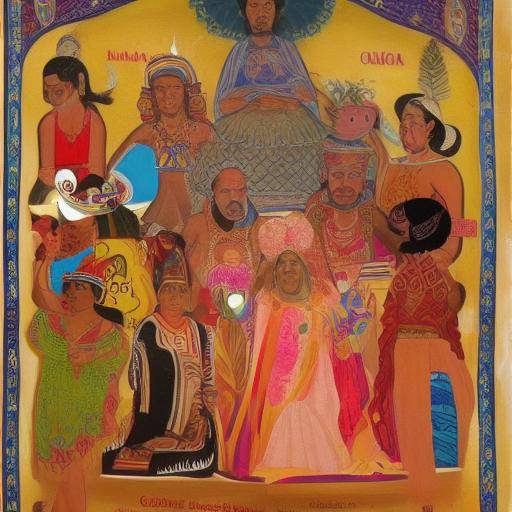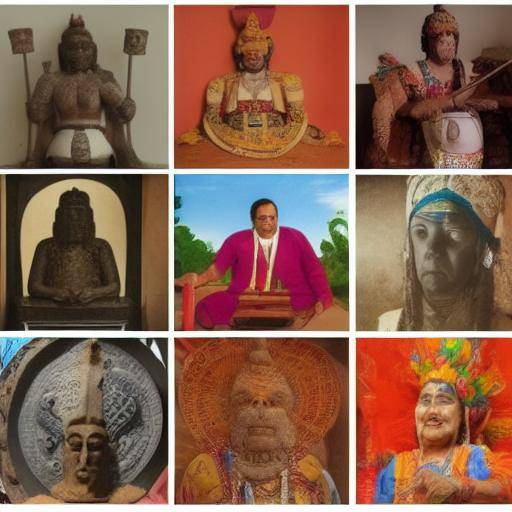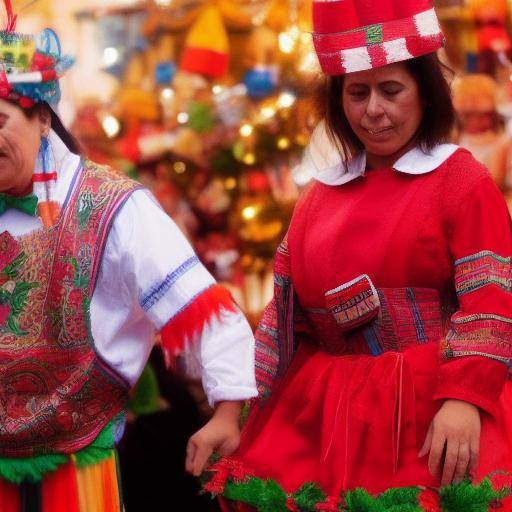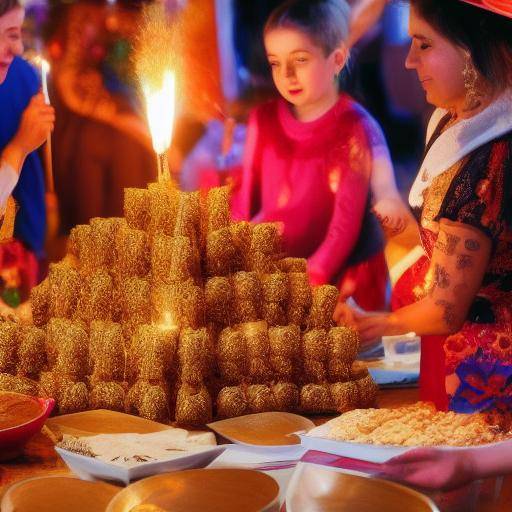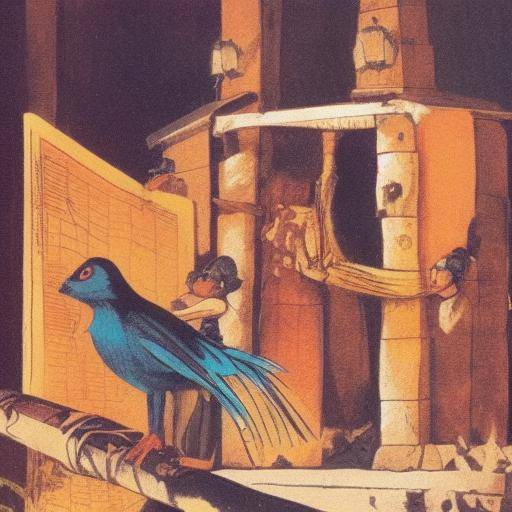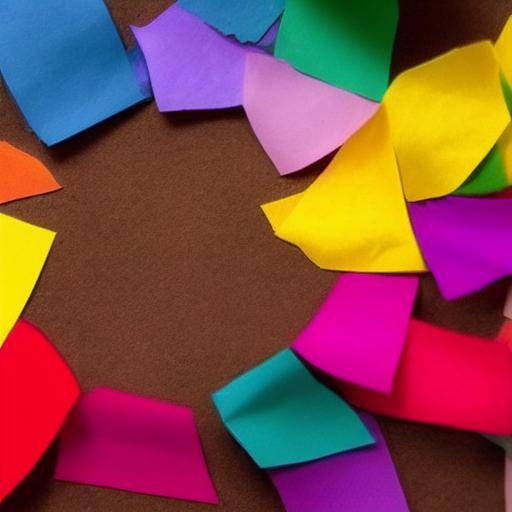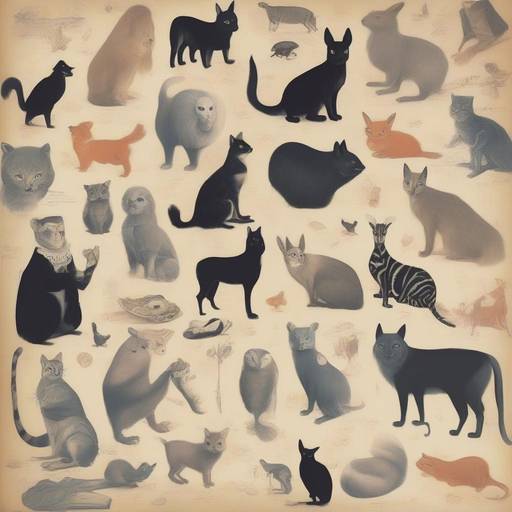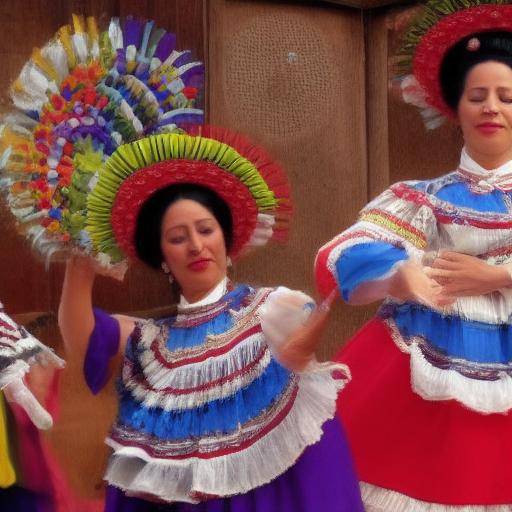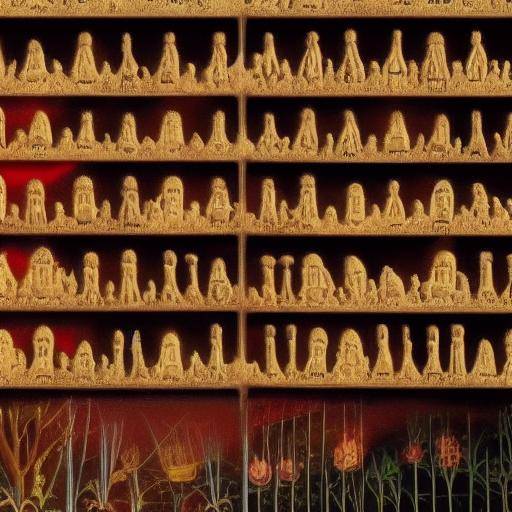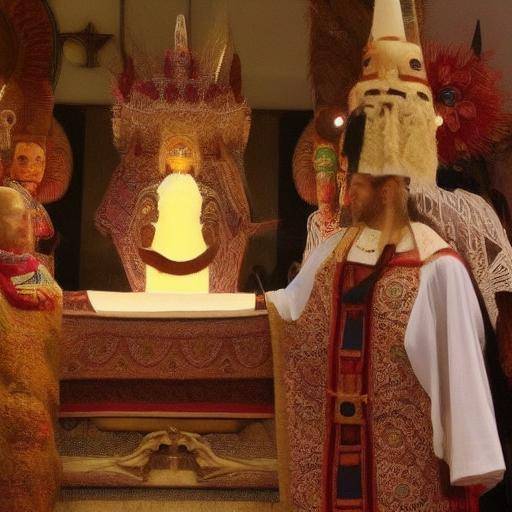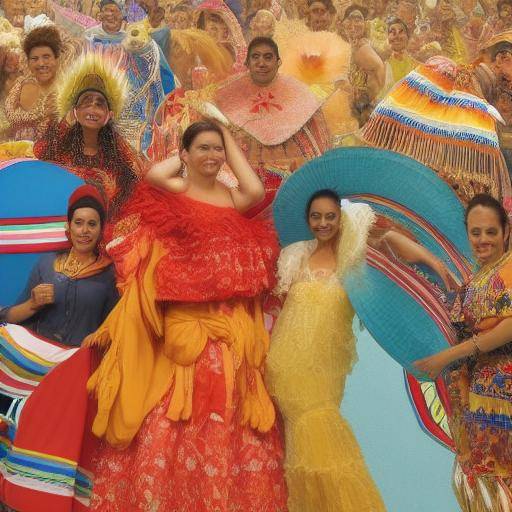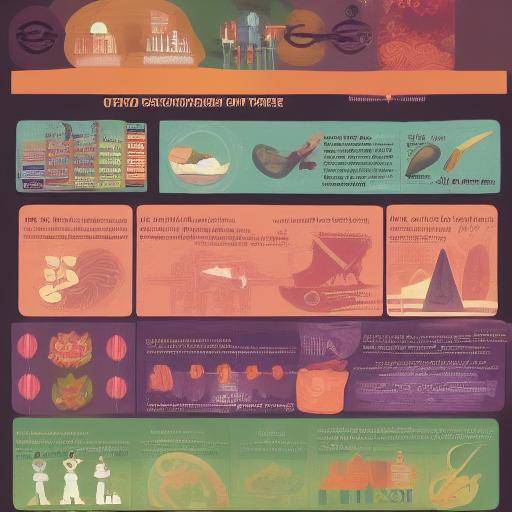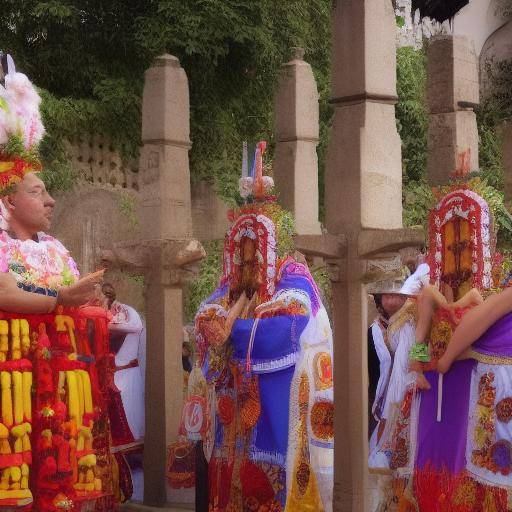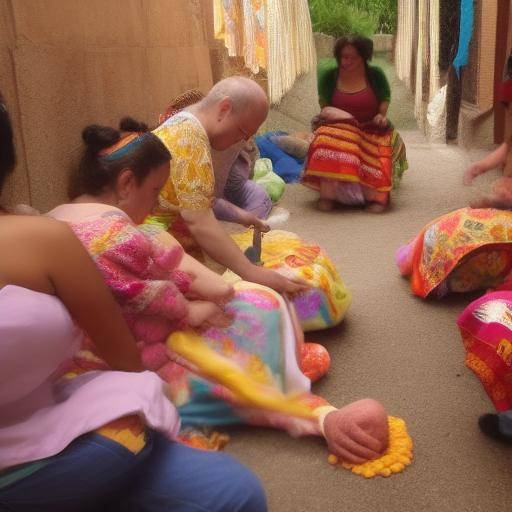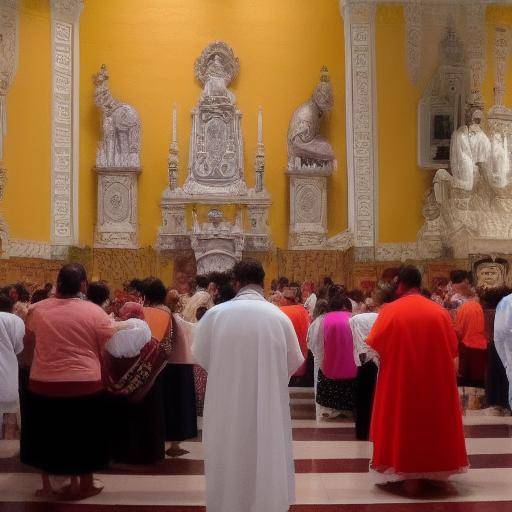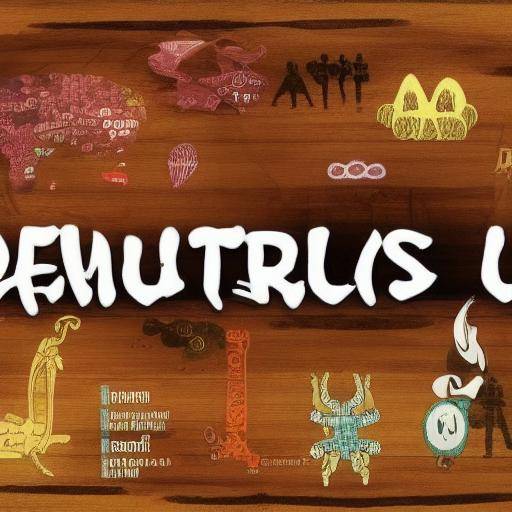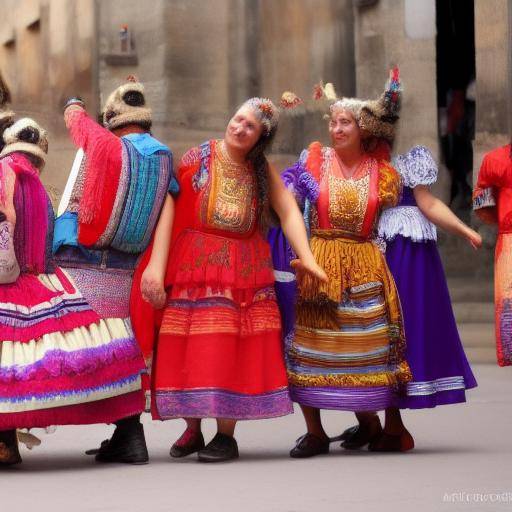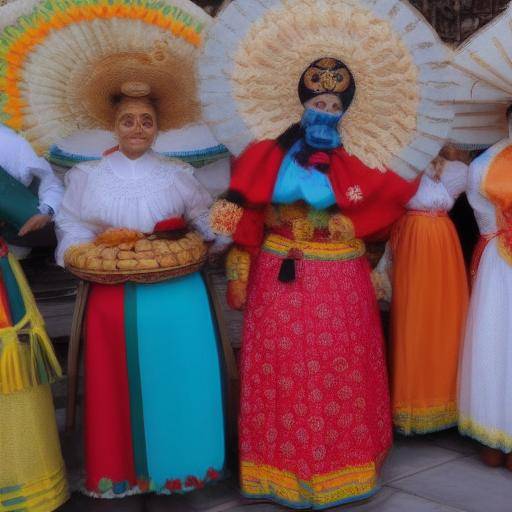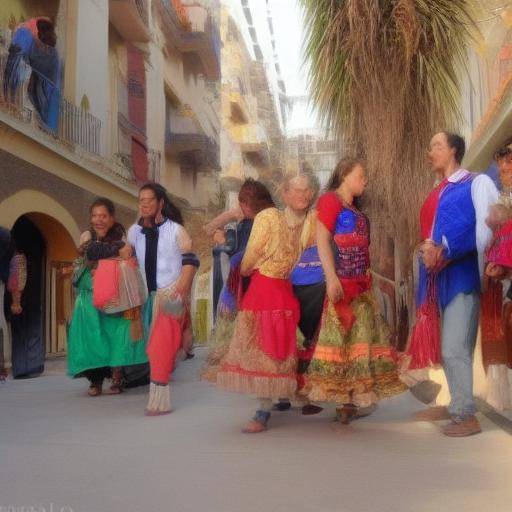
Good luck-related superstitions have been an essential part of diverse cultures around the world. These beliefs, passed from generation to generation, reveal much to us about human nature and our constant pursuit of positive auspiciousness in daily life. In this article, we will explore the superstitions of good luck in different cultures, their history, impact on society, comparisons between different regions and practical advice for those interested in this fascinating theme.
Introduction
Since time immemorial, humanity has sought what can attract good luck. From amulets to specific rituals, each culture has developed its own customs and superstitions related to attracting good fortune. In this article, we will explore these practices from a historical, cultural and current perspective. We will learn about the superstitions of good luck that have been deeply rooted in different cultures, their motivations and how they manifest themselves in everyday life.
The superstitions of good luck are a significant part of the cultural identity of many societies. Through the exploration of these beliefs, we hope to discover the common bonds that bind mankind in their quest for fortune and success. We will also examine the notable differences between superstitions in different regions, which will allow us to appreciate cultural diversity and the different ways in which people interpret and seek good luck.
History and Background
The superstitions of good luck have deep roots in the history of humanity. From ancient civilizations to modern societies, people have sought ways to influence their destiny through different practices. In the Middle Ages, for example, it was believed that wearing a four-leaf clover would give good luck and protection against evil. These myths and legends have been passed from generation to generation, influencing current traditions.
The superstitions of good luck have not only been maintained over time, but have also evolved to adapt to changing social and cultural conditions. As societies have undergone transformations, these beliefs have found new ways of manifesting themselves, incorporating elements of modern life. From lucky charms to special celebrations, traditions related to good luck continue to play an important role in the daily lives of many people.
Deep analysis
By exploring the superstitions of good luck, it is crucial to understand the reasons behind these entrenched beliefs. Beyond mere superstition, these practices have a significant psychological impact on people. The sense of control that comes from performing a good luck ritual can provide people with a sense of safety and emotional well-being. In addition, these beliefs can unite communities, creating a sense of shared identity and cultural belonging.
The superstitions of good luck, despite their perceived benefits, can also present challenges. In some cases, these beliefs may lead to obsessive or irrational behaviors. Anxiety or stress may arise if a person feels he cannot complete a specific ritual to ensure good luck. In addition, excessive dependence on superstition may prevent people from taking responsibility for their own actions and results.
Comprehensive review
Beyond their individual impact, the superstitions of good luck also have social and cultural implications. These beliefs influence collective decisions, from the way buildings are designed to the dates chosen for important events. In some countries, good-luck-related superstitions can significantly impact the economy, as certain actions may be considered more or less conducive to the rooted cultural beliefs.
Although the superstitions of good luck have their positive side, it is essential to understand their limitations. By overly relying on good luck, people can limit their ability to make informed decisions and act proactively. It is important to find a balance between tradition and rationality to ensure that decisions are made in a informed and realistic manner, regardless of beliefs about good luck.
Comparative analysis
By comparing the superstitions of good luck in different cultures, fascinating similarities and contrasts are revealed. While it is common to find practices such as touching wood or crossing fingers in many cultures, there are also significant differences in beliefs regarding objects, numbers or rituals considered auspicious. These variations offer a vision of cultural diversity and the wealth of traditions around the world.
Differences in good luck superstitions often reflect the unique characteristics of each culture. Objects or actions considered conducive in one region may not have the same meaning in another. These differences highlight the importance of understanding and respecting diverse cultural practices, even if they differ from our own personal beliefs.
Practical Tips and Accessible Recommendations
For those interested in exploring the superstitions of good luck, it is crucial to make it informed and reflective. Rather than relying blindly on popular beliefs, a balanced approach can be adopted that combines tradition with logical reasoning. Some practices, such as carrying a significant symbol or engaging in traditional rituals, can serve as personal reminders of hope and determination, regardless of their real influence on good luck.
It is important to remember that good luck does not replace preparation, perseverance and informed decision-making. In addressing challenges and opportunities, it is essential to rely on planning, self-confidence and hard work. By integrating personal beliefs into a rational and practical framework, you can maximize the sense of control over life while maintaining a realistic and informed approach.
Industry Perspectives and Expert Reviews
Good luck superstitions can also have implications in different fields, including the business world, entertainment and the arts. In some cases, certain superstitions may influence decisions related to design, marketing or event programming. Some entrepreneurs and business leaders, for example, can take popular beliefs into account when planning product launches or business openings.
Experts in psychology and sociology also offer valuable insights on how the superstitions of good luck influence human behavior and society in general. Scientific studies and academic analysis provide a deeper understanding of the reasons behind these rooted beliefs and the effects they have on everyday life.
Case Studies and Real Life Applications
Exploring case studies related to good luck superstitions provides a practical insight into how these beliefs impact personal experiences and daily decisions. From the way weddings are planned to the way companies are managed, good luck superstitions can play a subtle but significant role in a wide range of contexts.
In analysing actual cases, we can examine the results of following superstitious practices, as well as lessons learned from situations where good luck may have been considered a determining factor. These examples offer an opportunity to reflect on the intersection between tradition, chance and informed decision-making.
Future Trends and Predictions
The future of good luck superstitions is of particular interest, as global culture and sociocultural trends continue to evolve. As international technology, communications and interactions become more omnipresent, cultural influences are also intertwined in new and complex ways. This can result in the emergence of new superstitious practices or the reinterpretation of existing beliefs in contemporary contexts.
In addition, intercultural dialogue and globalization can lead to greater dissemination of certain superstitions around the world, as well as greater understanding and appreciation for the traditions of different cultures. At the same time, scientific understanding and critical thinking are likely to continue to challenge some of these entrenched beliefs, which may influence their relevance and diffusion in the future.
Conclusions and FAQs
In conclusion, the superstitions of good luck have been an integral part of human experience throughout history and around the world. Exploring these beliefs gives us a unique perspective on cultural diversity, human psychology and the interaction between tradition and rationality. In considering the future of these entrenched beliefs, it is crucial to maintain a balance between respect for cultural diversity and the promotion of critical thinking and informed decision-making.
Frequently asked questions
What is the origin of the superstitions of good luck?
The superstitions of good luck have their roots in human experiences and interpretations of significant events throughout history. The search for control over unpredictable events has led to the development of beliefs and practices aimed at influencing fortune and destiny.
Are the superstitions of good luck universal?
While many cultures have their own superstitions of good luck, specific practices and symbols considered auspicious may vary widely. Some beliefs are shared by multiple cultures, while others are unique to a specific region or group.
Do the superstitions of good luck have any real impact on everyday life?
Good luck superstitions can influence human behavior and everyday decisions, either consciously or unconsciously. The real impact of these beliefs can vary according to the cultural context and individual circumstances.
Is it possible to reconcile superstitious beliefs with critical and rational thinking?
Yeah. Conciliation of superstitious beliefs with critical and rational thinking implies recognizing the cultural and personal importance of the superstitions of good luck, while maintaining the capacity to make informed and informed decisions.
What is the role of science and psychology in studying the superstitions of good luck?
Science and psychology provide valuable insights into superstitious beliefs, including their origin, impact on human behavior and the underlying reasons for their persistence in society. These fields of study contribute to a deeper understanding of the superstitions of good luck.
What impact do good luck superstitions have on decision-making in business and business environments?
Good luck superstitions can influence business and business decisions in certain contexts. Some business leaders may take these beliefs into account when planning marketing strategies, product launches or opening up new businesses.
Conclusion
The superstitions of good luck offer a unique window to the complexity of human experience and cultural diversity. In exploring these deep-rooted beliefs, we can appreciate the richness of tradition, as well as reflect on the intersection between culture, psychology and decision-making. As the world continues to evolve, the superstitions of good luck can continue to play a significant role, even in a context of critical thinking and rationality.
Ultimately, it is essential to maintain a balanced approach that values cultural diversity and personal traditions, while encouraging critical reflection and informed decision-making. By approaching the superstitions of good luck with an open and curious mind, we can enrich our understanding of humanity and celebrate the complexities that make every culture a unique treasure.




